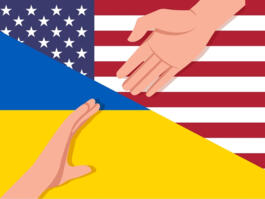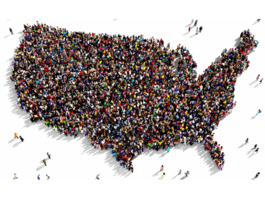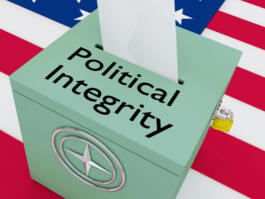Gas Prices Force Americans to Drive Less, Cut Spending
Soaring fuel prices have caused a majority of Americans to drive less and reduce spending in other areas of their household budgets.

Soaring fuel prices have caused a majority of Americans to drive less and reduce spending in other areas of their household budgets.

With $30 trillion of debt -- which has grown by $5 trillion in just the last two years, with another $2 trillion of red ink expected to get spilled this year -- you might have expected Congress at least to pretend it will temper its reckless spending proclivities.

In an interview with Reuters, Dmitry Peskov, Russian President Vladimir Putin's spokesman for decades, made a startling offer. Moscow could end the Ukraine war immediately, said Peskov, if four conditions were met.

Twenty-nine percent (29%) of Likely U.S. Voters think the country is heading in the right direction, according to a new Rasmussen Reports national telephone and online survey for the week ending March 10, 2022.

A majority of voters are concerned that Russia will use nuclear weapons in its war against Ukraine, but are less worried that the U.S. could be a target of a Russian nuclear attack.

In surveys last week, this is what America told Rasmussen Reports...

Economic confidence rose to 97.6 in this month’s Rasmussen Reports Economic Index, about one point higher than February. This month’s gain follows two months of declines that in February brought the index to its lowest point since May 2020.

Most Americans are OK with the way the news media have been covering the Russian invasion of Ukraine, and aren’t interested in discussions of the war’s impact on domestic politics.

It turns out that we live in a nationalist world. That's one of the lessons people are learning from the surprise early results of the Russo-Ukrainian war.

When several NATO nations revealed that they had dozens of Russian-made MiG-29s, the idea arose to fly them to Ukraine and turn them over to Ukrainian pilots familiar with the MiGs.

A majority of voters think President Joe Biden could have done more to stop Russia’s invasion of Ukraine, and many believe former President Trump would have prevented the Russian invasion.

— If the Supreme Court overturns Roe vs. Wade later this year, it could hypothetically energize Democratic voters in the 2022 midterms. But it’s unclear whether abortion will become a big enough motivator for Democrats to overcome the historical pattern of unfavorable midterms for the party controlling the White House, particularly if concern about the coronavirus pandemic and inflation remains high.
— Our analysis suggests that 7 states are the likeliest to experience political tensions over abortion, because they have majorities or pluralities of voters who favor abortion rights but have GOP-led legislatures who may feel driven to restrict abortion access if the Supreme Court overturns Roe.
— Each of these 7 states has a highly competitive gubernatorial or Senate race on tap for this fall, and several of them have 2 such races.

Americans are ahead of last year’s pace in filing their income taxes, but fewer expect a refund from the Internal Revenue Service.

Most Americans don’t expect the stock market to rise in the next year, and more than half worry that the U.S. could face another Great Depression.

Russia's invasion revealed big differences in how politicians deal with threats.

The Rasmussen Reports Immigration Index for the week of February 27-March 3, 2022, increased to 92.0, up more than five points from 86.4 two weeks earlier.

More than half of voters believe cheating affected the 2020 election and an overwhelming majority say the issue of election integrity will be important in the midterm elections.

We live in a strange world. John D. Rockefeller, the founder of Standard Oil, helped provide the energy that powered the American century beginning in the early 1900s. Today, his grandchildren spend the billions of dollars that he donated to the Rockefeller Foundation to attack the same oil and gas industry that he almost single-handedly built. Likewise, Henry Ford's trust, the Ford Foundation, now spends millions of dollars on climate change -- as if the automobile was a sinister invention.

After Friday's NATO summit refused to establish a no-fly zone over Ukraine, President Volodymyr Zelensky said the allies' failure to "close the skies" to Russian military aircraft gives "a green light for further bombing of Ukrainian cities."

Thirty-two percent (32%) of Likely U.S. Voters think the country is heading in the right direction, according to a new Rasmussen Reports national telephone and online survey for the week ending March 3, 2022.